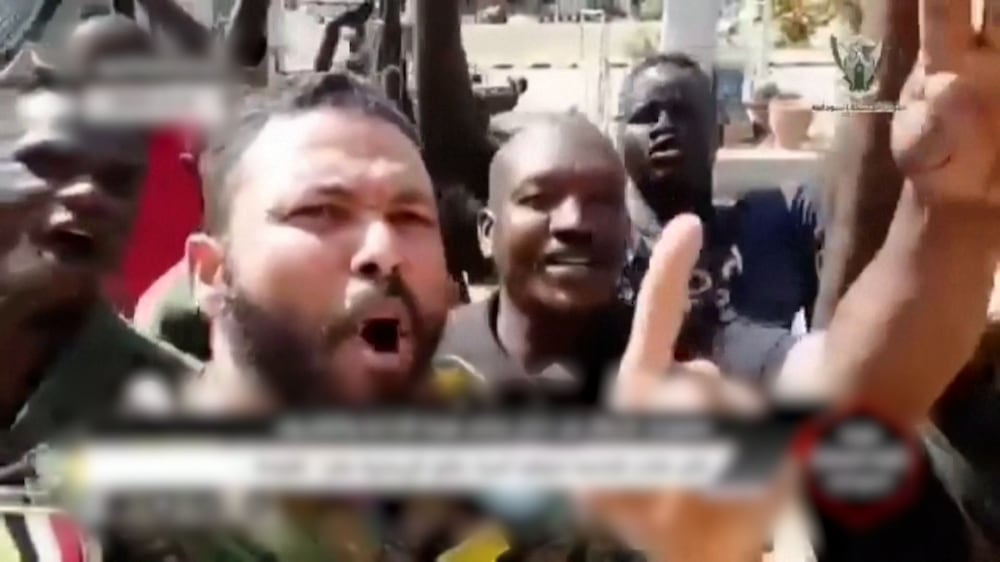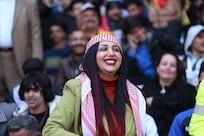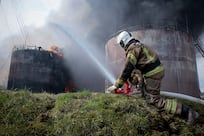Artillery fire was reported in the Sudanese capital Khartoum on Wednesday as army chief Gen Abdel Fattah Al Burhan vowed to press on with the army's offensive against the rival Rapid Support Forces paramilitary.
Gen Al Burhan’s army and allied volunteers on Tuesday regained control of the state radio and television complex in Omdurman, a city across the Nile from Khartoum that is part of the capital’s greater area.
Its recapture by the army is a symbolic victory that could possibly signal a shift in the direction of the war, which broke out in April.
The complex has been captured by the RSF, alongside other key installations including the capital's only international airport and the presidential palace, in the early days of the war.
Hours after the army announced the recapture of the complex, Gen Al Burhan arrived in Omdurman amid jubilant scenes by troops and volunteers. The army posted online photos of the general having iftar, the meal Muslims eat to break their dawn-to-dusk fast during the month of Ramadan, which began on Monday.
The photos showed the general squatting on the ground on a street while surrounded by senior army officers and civilians.
“Our message to the Rapid Support Forces is that the armed forces and other organised forces will come after you everywhere until complete victory is ours,” an army statement quoted Gen Al Burhan as saying while addressing troops in Omdurman.
“We will continue to besiege the mutinous enemy everywhere,” said the general in camouflage combat fatigues and a matching jungle hat.
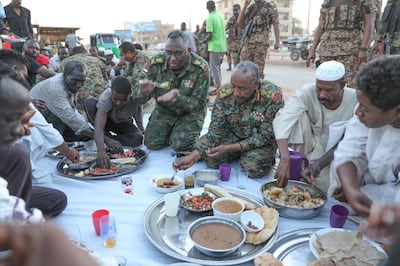
Mahmoud Nassar, a commander of a contingent of volunteers that took part in Tuesday's battle, said dozens of vehicles used by the RSF have been destroyed or captured by army troops backed by drones.
He said dozens of RSF fighters were also killed in the battle and subsequent operations in adjacent areas. The army has not released casualty figures among troops or the RSF.
The capture of the radio and TV complex and nearby districts of Omdurman was warmly greeted by residents of the historic city, where RSF fighters are blamed for widespread looting and commandeering private homes to use as military bases.
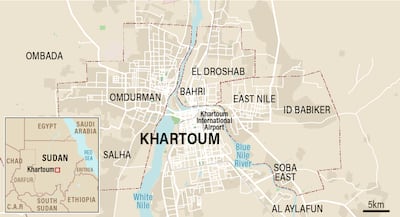
“I felt so much pride when I saw our army troops back on the streets,” said local resident Intisar Abdullah, a civil servant. “I tell the army ‘Don’t stop until you liberate every inch of our country from those mercenaries’,” she said.
Omdurman was mostly quiet on Wednesday, but residents of the capital reported intense shelling at the capital’s sports city, a sprawling complex in Khartoum captured by the RSF in the war’s early days.
The war in Sudan broke out on April 15 last year when weeks of tension between the army and the RSF over details of the country’s democratic transition boiled over into violence.
Eleven months later, the fighting has displaced about eight million people, killed tens of thousands and created a major humanitarian crisis.
The UN says 18 million of Sudan's 48 million people are acutely food insecure, five million of whom have reached the last level before famine. The UN World Food Program says less than five per cent of Sudanese can afford a full meal.
Unless sufficient aid is delivered soon to Sudan, it has warned, “the largest famine crisis in the world” will emerge in the vast Afro-Arab nation.
According to the international aid group Save the Children, about 230,000 children and new mothers in Sudan are “likely to die from hunger” without urgent intervention.
However, the army this week rejected a call for a Ramadan truce to allow the safe delivery of humanitarian assistance to Sudanese in need. The call came in a UN Security Council resolution adopted on Friday.
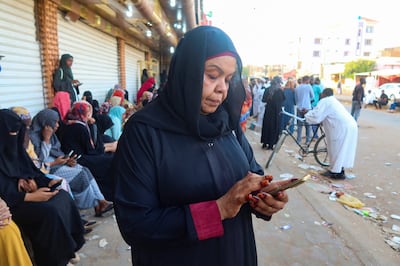
Its rejection of the call is widely believed to be rooted in its fear that the RSF would use the cessation of hostilities to regroup or to advantageously repost its fighters. There have also been instances since the war broke out when RSF fighters have looted UN food storage facilities or aid convoys.
Several ceasefires mediated by Saudi Arabia and the US last year proved short lived or were completely ignored, with each side blaming the other for their breach.
Al Shafie Ahmed reported from Kampala, Uganda
